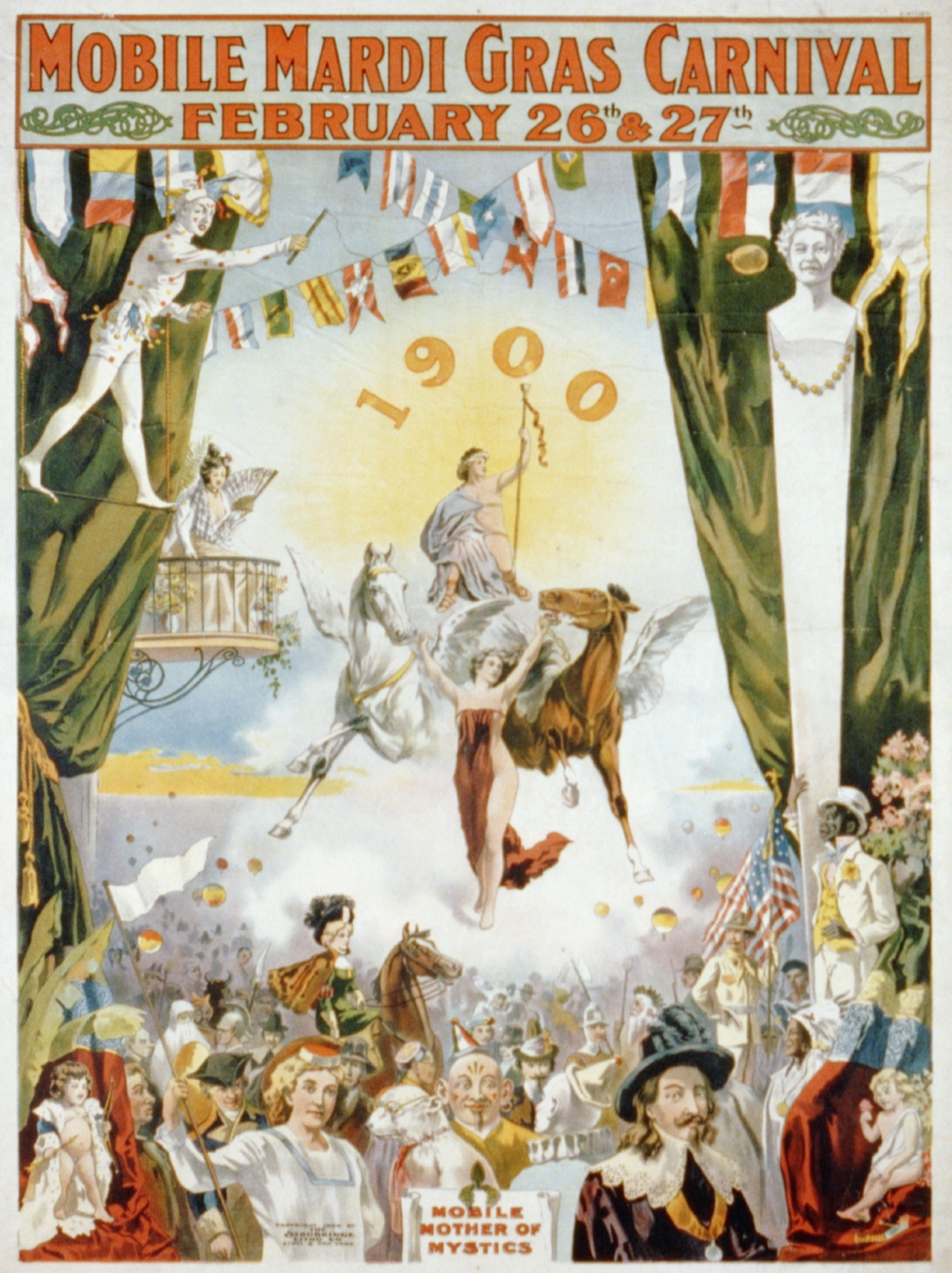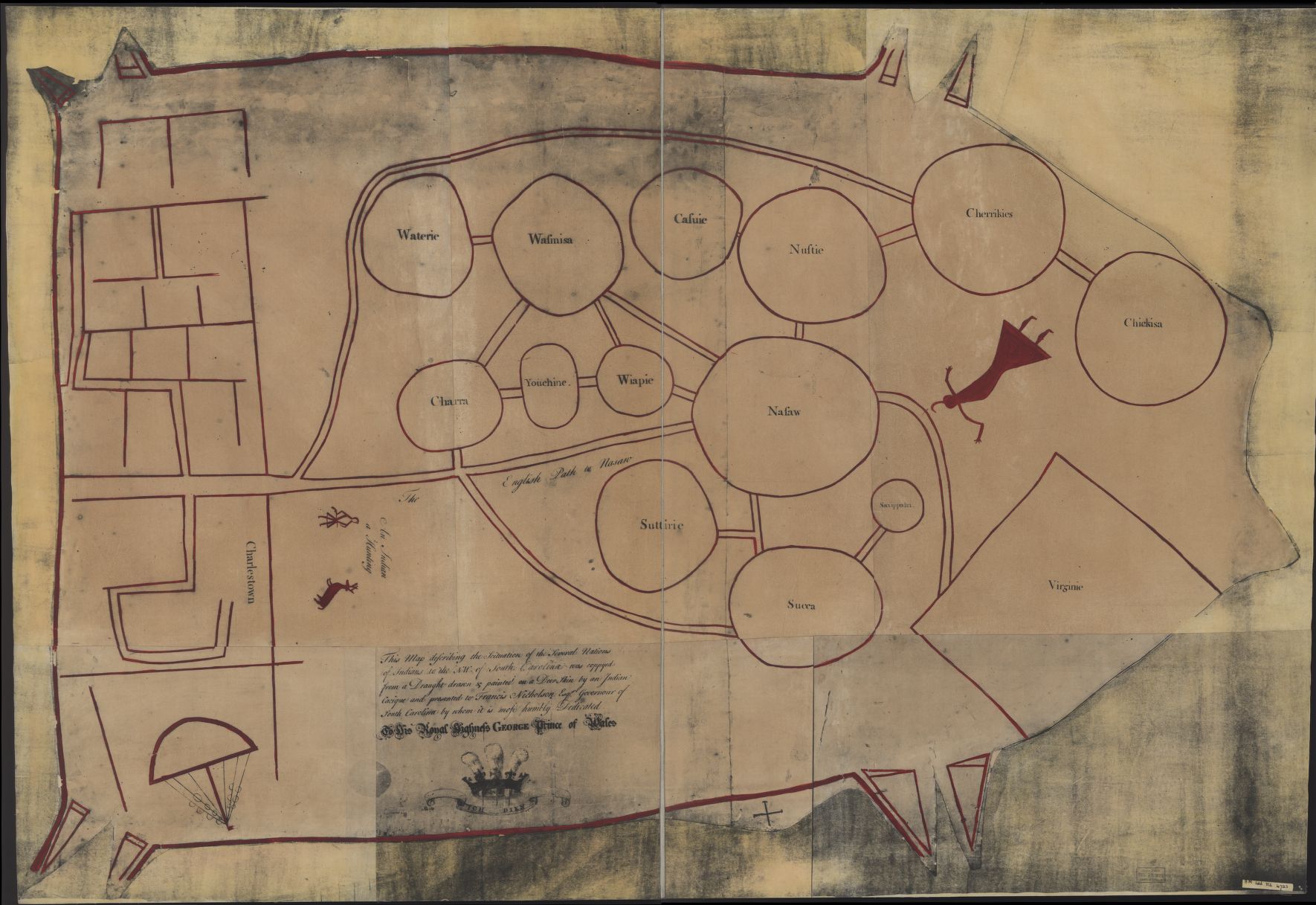|
Mystic Society
A mystic society is a Mardi Gras social organization in Mobile, Alabama, that presents parades and/or balls for the enjoyment of its members, guests, and the public. The New Orleans Krewe is patterned after Mobile's Mystics."Carnival/Mobile Mardi Gras Timeline" (list of events),The Museum of Mobile, 2002, webpagMoM-timeline(link dead) archiveArchived page The societies have been based in class, economic and racial groups. Mobile's parading mystic societies build colorful Carnival floats and create costumes around each year's themes. During the Carnival season, the mystic societies parade in costume on their floats throughout downtown Mobile. Masked society members toss small gifts, known as ''throws'', to the parade spectators. The ''throws'' can take the form of trinkets, candy, cookies, peanuts, panties, artificial roses, stuffed animals, doubloons, cups, hats, can coolers, Frisbees, medallion necklaces, bead necklaces of every variety, and Moon Pies. Mystic societies in Mobi ... [...More Info...] [...Related Items...] OR: [Wikipedia] [Google] [Baidu] |
Mistick Krewe Of Comus
The Mistick Krewe of Comus (MKC), founded in 1856, is the oldest extant New Orleans, Louisiana Carnival Krewe, the longest to continually parade with few interruptions from 1856 to 1991, and continues to hold a tableau ball for its members and guests, to date. Initially its public facade was The Pickwick Club. Before Comus was organized Carnival celebrations in New Orleans were mostly confined to the Catholic Creole community, parades were irregular and often very informal. Bernard de Marigny changed that in 1833 with the first formally organized New Orleans Carnival parade and tableau ball. It was Comus who in 1856, organized by 6 Protestant Anglo-Americans from the corresponding Uptown Neighborhoods (versus French Creole Vieux Carré), formalized the first continued observance of what we know today as New Orleans Mardi Gras or technically "Carnival" in New Orleans. French Catholics may have been invited thereafter, but sharp racial, ethnic, and class divides of New Orleans ... [...More Info...] [...Related Items...] OR: [Wikipedia] [Google] [Baidu] |
Mardi Gras In Mobile
Mardi Gras is the annual Carnival celebration in Mobile, Alabama. It is the oldest official Carnival celebration in the United States, started by Frenchman Nicholas Langlois in 1703 when Mobile was the capital of Louisiana. Although today Mardi Gras in New Orleans, New Orleans and South Louisiana celebrations are much more widely known for all the current traditions such as masked balls, parades, floats and throws were first featured in Mobile. The History of Mardi Gras in Mobile Alabama, USA Today From Mobile, Alabama, Mobile being the first capital of French Louisiana (1702), the festival began as a French Catholic tradition. Mardi Gras has now evolved into a mainstream multi-week celebration across the spectrum of cultures, becoming school holidays for the final Monday and Tuesday (some include We ... [...More Info...] [...Related Items...] OR: [Wikipedia] [Google] [Baidu] |
Cain's Merry Widows
The Mardi Gras mystic society of Cain's Merry Widows (a women's mystic society) was founded in 1974 in Mobile, Alabama, home of the first Mardi Gras in America (1703). The organization celebrates 50 years in 2024. "History timeline of Mardi Gras" (events), Museum of Mobile, 2007, webpage: MoM Each Mardi Gras, The ladies, known variously as "The Merry Widows of Joe Cain", "Joe Cain's Widows", or even just as "The Widows" gather on Joe Cain Day (the Sunday before Fat Tuesday), clothed in black mourning clothes with veils, to lay a wreath at Cain's burial site at Church Street Graveyard, wail over their "departed husband's" grave, then travel to Joe Cain's former house on Augusta Street to offer a toast and eulogy to their "Beloved Joe". The Huntsville-based band, The Pine Hill Haints, perform a song titled "The Merry Widows of Joe Cain" which, in its lyrics, pays homage to Joe Cain, Mardi Gras tradition, and the city of Mobile itself. The band also makes it a yearly tra ... [...More Info...] [...Related Items...] OR: [Wikipedia] [Google] [Baidu] |
The Order Of Myths
''The Order of Myths'' is a 2008 documentary film directed by Margaret Brown. It focuses on the Mardi Gras celebrations in Mobile, Alabama, the oldest in the United States. It reveals the separate mystic societies established and maintained by Black and White groups, and acknowledges the complex racial history of a city with a slaveholding past. While showing the mystic societies' ties to economic, class and racial stratification, the film showed the beginnings of interaction between the Black and White courts. It tells some of the history of Africatown, a community formed north of Mobile in 1860 by Africans from Ghana, transported illegally as slaves to Mobile decades after the end of the slave trade. The film competed in the Documentary Competition at the 2008 Sundance Film Festival. It had a limited release in New York in July 2008, and ran on Independent Lens, a PBS series featuring independent films, in 2009. It was distributed by The Cinema Guild. Critical reception T ... [...More Info...] [...Related Items...] OR: [Wikipedia] [Google] [Baidu] |
Mobile Mardi Gras 2010 25
Mobile may refer to: Places * Mobile, Alabama, a U.S. port city * Mobile County, Alabama * Mobile, Arizona, a small town near Phoenix, U.S. * Mobile, Newfoundland and Labrador Arts, entertainment, and media Music Groups and labels * Mobile (band), a Canadian rock band * Mobiles (band), a 1980s British band Other uses in music * ''Mobile'' (album), a 1999 album by Brazilian Paulinho Moska * "Mobile" (song), a 2003 song by Avril Lavigne from ''Let Go'' * "Mobile", a song by Gentle Giant from the album '' Free Hand'' Other uses in arts, entertainment, and media * Mobile (sculpture), a kinetic sculpture constructed to take advantage of the principle of equilibrium * ''Mobile'' (TV series), a British ITV drama * "Mobile", a short story by J. G. Ballard, later renamed " Venus Smiles" * Mobile, a feature of the game ''GunBound'' * '' Mobile Magazine'', a publication on portable electronics Military and law enforcement * ''Garde Mobile'', historic French military unit * Mobi ... [...More Info...] [...Related Items...] OR: [Wikipedia] [Google] [Baidu] |
Mobile Mardi Gras 2010 13
Mobile may refer to: Places * Mobile, Alabama, a U.S. port city * Mobile County, Alabama * Mobile, Arizona, a small town near Phoenix, U.S. * Mobile, Newfoundland and Labrador Arts, entertainment, and media Music Groups and labels * Mobile (band), a Canadian rock band * Mobiles (band), a 1980s British band Other uses in music * ''Mobile'' (album), a 1999 album by Brazilian Paulinho Moska * "Mobile" (song), a 2003 song by Avril Lavigne from ''Let Go'' * "Mobile", a song by Gentle Giant from the album '' Free Hand'' Other uses in arts, entertainment, and media * Mobile (sculpture), a kinetic sculpture constructed to take advantage of the principle of equilibrium * ''Mobile'' (TV series), a British ITV drama * "Mobile", a short story by J. G. Ballard, later renamed " Venus Smiles" * Mobile, a feature of the game ''GunBound'' * '' Mobile Magazine'', a publication on portable electronics Military and law enforcement * ''Garde Mobile'', historic French military unit * Mobile ... [...More Info...] [...Related Items...] OR: [Wikipedia] [Google] [Baidu] |
Lundi Gras
Lundi Gras is a relatively recently popularized name for a series of Shrove Monday events taking place during the Mardi Gras. It includes the tradition of Rex, king of the New Orleans carnival, and Zulu King arriving by boat. This began in 1874, but the term Lundi Gras (French for "Fat Monday") was not widely applied until 1987 when the arrival was brought back as part of a series of river-related events under the name of "Lundi Gras". Lundi Gras was the creation of journalist Errol Laborde. The event was staged with the cooperation of Riverwalk Marketplace and its then marketing director Carol Thistle Lentz. The events are detailed in Laborde's book, ''Krewe: The Early New Orleans Carnival from Comus to Zulu''. 19th-century beginnings In , 18 years after the beginning of modern Carnival celebrations in New Orleans, Rex chose to have a grand arrival in New Orleans from the Mississippi River. Once on dry land, Rex and his royal court were placed in carriages and driven through t ... [...More Info...] [...Related Items...] OR: [Wikipedia] [Google] [Baidu] |
Order Of Myths
The Order of Myths, (OOMs) founded in 1867, "Mobile's Mardi Gras" (article), Encyclopedia of Alabama, January 2008 (revised 19 January 2010), webpage: -->Article.jsp?id=h-1437 EncAla-1437 is the second oldest mystic society to celebrate Mardi Gras in Mobile, Alabama, after the Striker's Independent Society. It is the oldest continuously parading mystic society in Mobile. The Order of Myths chose, as its symbolic emblem, Folly chasing Death around a broken column of life. During parades, a person dressed in a jester's suit, as Folly, chases a person dressed in a skeleton suit as Death, around a Greek column on the emblem float. At the conclusion of the traditional OOM parade, Death is defeated, and Folly wins the day. The first parading mystic society, the Cowbellion de Rakin Society, formed in 1830-1831, was disbanded in the early 1900s but has since been re-created circa 1990. The oldest known mystic society in the history of Mobile was the ''Boeuf Gras Society'', fo ... [...More Info...] [...Related Items...] OR: [Wikipedia] [Google] [Baidu] |
Chickasaw
The Chickasaw ( ) are an Indigenous people of the Southeastern Woodlands, United States. Their traditional territory was in northern Mississippi, northwestern and northern Alabama, western Tennessee and southwestern Kentucky. Their language is classified as a member of the Muskogean language family. In the present day, they are organized as the Federally recognized tribe, federally recognized Chickasaw Nation. Chickasaw people have a migration story in which they moved from a land west of the Mississippi River to reach present-day northeast Mississippi, northwest Alabama, and into Lawrence County, Tennessee. They had interaction with French, English, and Spanish colonists during the Colonial history of the United States, colonial period. The United States considered the Chickasaw one of the Five Civilized Tribes of the Southeast, as they adopted numerous practices of European Americans. Resisting European-American settlers encroaching on their territory, they were forced by the ... [...More Info...] [...Related Items...] OR: [Wikipedia] [Google] [Baidu] |
Fat Tuesday
Mardi Gras (, ; also known as Shrove Tuesday) is the final day of Carnival (also known as Shrovetide or Fastelavn); it thus falls on the day before the beginning of Lent on Ash Wednesday. is French for "Fat Tuesday", referring to it being the last day of consuming rich, fatty foods, most notably red meat, in preparation for the Christian fasting season of Lent, during which such foods are avoided. Related popular practices are associated with Carnival celebrations before the fasting and religious obligations associated with the penitential season of Lent. In countries such as the United Kingdom, Mardi Gras is more usually known as Pancake Day or (traditionally) Shrove Tuesday, derived from the word ''shrive'', meaning "to administer the sacrament of confession to; to absolve". Background During the liturgical season of Lent, some Christians abstain from the consumption of certain foods such as meat, eggs, dairy products, and alcoholic beverages. Most Christian denominati ... [...More Info...] [...Related Items...] OR: [Wikipedia] [Google] [Baidu] |




